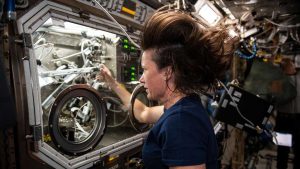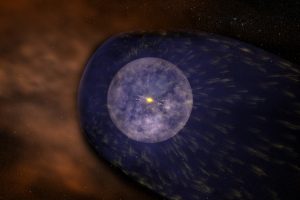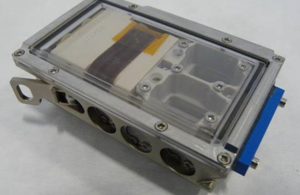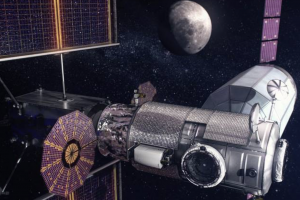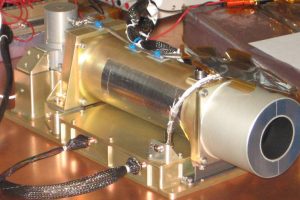After more than 35 days onboard the International Space Station, SpaceX’s 30th Commercial Resupply Services Mission for NASA successfully splashed back to Earth off the Florida coast earlier this week.
The projects returned include space-manufactured optical fibers (ZBLAN), a novel gene therapy to prevent vision loss from age-related macular degeneration, and a study of mechanisms behind neuroinflammation to help study Parkinson’s disease.
There was also an automated “tumor-on-a-chip” system that grows patient-derived cancer cells to test chemotherapy drugs, work on layer-by-layer manufacturing of artificial retinas, and a study of the effects of spaceflight on Choctaw heirloom seeds.
You can read more about all of the ISS National Lab payloads on SpaceX CRS-30 online.
National Laboratory
The ISS National Laboratory is a one-of-a-kind lab that enables research and development not possible on Earth. As a public service enterprise, researchers are allowed to use the multiuser facility to “improve quality of life on Earth, mature space-based business models, advance science literacy in the future workforce, and expand a sustainable and scalable market in low Earth orbit”.
Note that resources on the ISS are available to support non-NASA science, including use by academic institutions, and the private sector.
The Center for the Advancement of Science in Space (CASIS) manages the ISS National Lab, under Cooperative Agreement with NASA.
Pictured above is Nasa-astronaut Megan McArthur at work in the ISS National Laboratory.
Image: Nasa
See also: ISS National Laboratory boosts in-space production projects
 Electronics Weekly Electronics Design & Components Tech News
Electronics Weekly Electronics Design & Components Tech News
